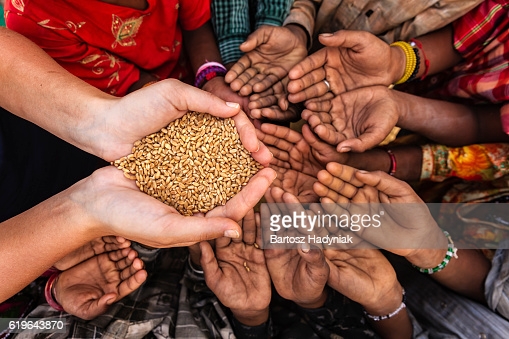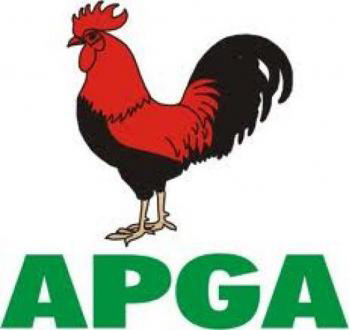After the unprecedented COVID-19 lockdown and the historic EndSARS protests, many Nigerians discovered that there were warehouses filled with food items — which were palliatives meant for them during the heat of the pandemic. The looting that trailed the discovery to a large extent portrayed in deep contexts the poverty, food scarcity, and surge of hunger that the Nigerian masses were battling with.
Food insecurity is fast becoming an endemic in Nigeria. And this can be traced to a myriad of factors ranging from the hike in food prices to the COVID-19 onslaught, to the prevalent terrorist acts of Boko Haram militants against farmers and others. Other causes of food insecurity in Nigeria include inadequate mechanized farming tools, poor knowledge of modern farming, inaccessibility to its attendant tools, insufficient funding in the agricultural sector, and lack of access to markets.
During the lockdown in 2020, many Nigerians could barely feed because of the ripple impacts of the pandemic on the food supply chain. Research shows that Nigeria has the highest number of children suffering from acute malnutrition and pressure of stunted growth in the world. In fact, about 90% of Nigerians cannot afford a daily healthy diet, as World Bank data reveals about. Also, an average Nigerian earns below one dollar.
First, the Nigerian government should give the agricultural sector the same attention it gives the oil sector. Ever since the boom in oil, oil has served as the major source of revenue for Nigeria, while agriculture has been relegated to the backseat over the years. This will encourage more people to go into farming and strengthen our existing agricultural culture to garner more outputs.
Also, the government lacks continuity for capital projects. Many of them are abandoned halfway, and as such, causing a negative impact on the supply of food production and distribution. Where is ‘Operation Feed the Nation’ today? That national agricultural extension and mobilization program in 1976 geared towards achieving our self-sufficiency in food crop production and inspire a new generation to return to farming. Apparently, the good initiative was launched, but its impact was obviously for a limited time.
A short trip down the memory lane would also reveal that a bag of rice was sold between ₦12,000-₦14,000 in 2017. And in recent times, it is sold between ₦23,000 and ₦27,000 — which is even beyond Nigeria’s minimum wage. And this just within the space of four years, without much consideration to the fast-decreasing purchasing power of the people. Now, how do people who earn below one dollar daily feed well when the prices of foodstuffs are constantly skyrocketing beyond the reach of an average Nigerian worker?
At a point, the Nigerian government closed the borders which prohibited the importation of rice to Nigeria and forcing Nigerian farmers to cultivate rice locally. As rice is now being produced in Nigeria, what’s the essence when the price still remains on the high side and not affordable?
In 2017, an average Nigerian could take a thousand naira to the market to get enough foodstuffs to cook for a family of four — even without having all the essential ingredients needed to cook like palm oil, groundnut oil, and they would be satisfied. But this is not possible in the Nigeria of today where going to the market requires serious calculation, frugality, and bargaining, otherwise, your budget would be helpless.
Another thing our government needs to do is to improve the quality of farming in rural and remote areas. Poor infrastructure hampers the productivity of women and local farmers, the major drivers of our agricultural economy. Understandably, men will do so well in the agricultural sector than women. According to research, male farmers are likely to purchase land for farming, have it moistened, and earn an average income than female farmers. Whereas, female farmers can not do these on their own. They might have to hire labourers or make use of their family members as labourers. Obviously, women are rarely involved in cash crop production such as cocoa, rubber, and others.
To provide standard food security for Nigerians, the government needs to make standard machine tools for farmers. Almost 90% of the 21st century farmers utilize and deploy manual farming methods. This makes it very slow to farm and slows down productivity. About only 3% of these farmers make use of mechanized farming. The advantage of mechanized farming is its ability to aid agricultural productivity and improved outputs, which would help ensure food security in the long run and the long-term.
Furthermore, there should be a continued improvement in the monitoring and evaluation of governmental strategies and impacts of initiatives. The government should consider data-driven approaches in allocating funds to areas of increased need such as rural development, mechanized farming, women empowerment, and adequate credit for small-scale farmers. Also, many farmers are not educated. When the government organizes seminars and programs for them on the importance of mechanized farming, they will be motivated to utilise modern methods.
One of the major commitments needed by the government is to address food insecurity. This might require the government to facilitate public-private partnerships and leverage collaboration with other countries and multilateral organizations, particularly on the African continent. Also, this can help us in meeting the targets and objectives of the United Nations Sustainable Development Goal 1 (Zero Hunger) as a country.
In conclusion, tackling Nigeria’s food insecurity will need concerted efforts, effective strategies of initiatives, and policy implementation from both the government and private sectors to promote mechanized farming, support and empower women and rural farmers, and provide extensive financial support.
Precious Ewuji, written from Ekiti State.








2 comments
Amazing, I feel you should be employed as the special adviser to the president
While the writer lamented about the state of Nigeria economy, she also proffered solution. I love this. Well-done, Ma.